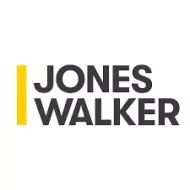- within Employment and HR topic(s)
- within Law Practice Management, Litigation, Mediation & Arbitration and Insurance topic(s)
- in United States
On Sept. 19, President Donald Trump signed an executive order imposing on employers an additional$100,000application fee pertaining to petitions for foreign nationals seeking to enter the United States on H-1B (specialty occupation) visas. The following day, US Citizenship and Immigration Services (USCIS) and US Customs and Border Protection issued a memorandum clarifying that the fee applies to foreign nationals for whom an H-1B petition was filed after Sept. 21, 2025. Thus, it does not apply to current H-1B holders or pending H-1B applications. Previously, it cost employers between $2,000 and $5,000 per H-1B petition, depending on the size of the employer. The new $100,000 fee is a "one time" fee, meaning that it will be imposed only on the employer that submits a new H-1B application. This fee is in addition to the other preexisting fees that pertain to filing H-1B petitions.
When entering the United States, individuals who are not subject to the fee should travel with their H-1B visa and H-1B approval notice (I-797) showing a filing date prior to Sept. 21. Because the fee applies to those seeking entry into the United States, it presumably does not apply to foreign nationals who change status — for example, someone who is already in the United States on an F-1 status and wants to change to an H-1B, which is extremely common. These individuals, however, inevitably travel abroad to go home, visit family, or take vacations, and the fee would be triggered upon their return.
As you may know, there is a registration process for H-1Bs. Registrations are filed the first week in March. USCIS then randomly selects registrations in late March. Roughly 1 in 4 registrations were selected for processing in 2025. The process has come to be known as a lottery. With the new fee, it's a lottery where the employer will now have to pay a hefty amount to participate.
We fully expect the new fee to be challenged in the courts. Additionally, last week Trump published a proposal to change how H-1B visas are allotted from the current lottery system to a system that would favor foreign nationals with higher skills and incomes. Should that take effect, it is likely that it will be litigated as well. We will continue to monitor these developments closely and keep you informed of any significant legal or policy changes that may impact your workforce strategy.
The content of this article is intended to provide a general guide to the subject matter. Specialist advice should be sought about your specific circumstances.



